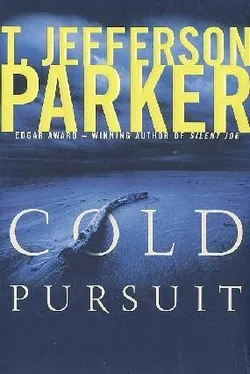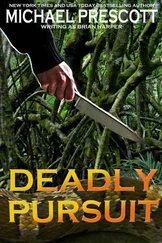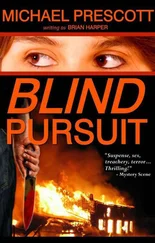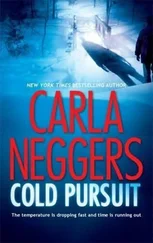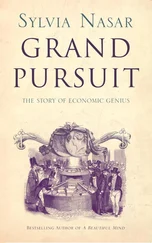Well, McMichael thought, looking at the Kennedy shot: there was at least one Irish-American that Pete didn't hate.
Pete's address book was an old leather-bound spiral volume with his name embossed in gold on the cover.
Using Henry Grothke Jr.'s list of heirs and the disinherited, McMichael found that they were all listed here, except for the estranged son, Carl. He looked to see if Raegan's Libertad was listed, but it wasn't. He wrote down Victor's address and room number at the Horton Grand Hotel. Grothke, Steiner & Grothke, of course. Sally Rainwater. He put a last name to deep-voice Dom from Libertad - da Rocha. He noted numbers for the mayor, the city councilmen and women, the county supervisors, the Democratic Party chairman, the chief of police and three of the assistant chiefs- Almanza, Bland and Dodge. The port commissioners. And the San Diego diocese, the bishop. Pete had come a long way, McMichael thought, from fisherman to friend of the bishop.
The calendar was a plastic-clad book, very similar to McMichael's own.
He turned to Wednesday, January 8, the day Pete had died: Dom 8 breakf/plumber 10
Dom, of the Tunaboat Foundation? McMichael made a note to call him.
And Tuesday, January 7: call Camlin 9:30/MRI 12
Monday, January 6: Grothke noon
Sunday, January 5: Grothke noon
McMichael wondered why you'd meet your lawyer at noon on a Sunday. Golf? Something social? Old Grothke or Junior?
He found a number for Myron Camlin in Pete's address book and dialed. A receptionist told him he'd reached the law office of Myron D. Camlin. McMichael told her who he was and she put him through. He asked the lawyer why Pete Braga had called.
"He was unhappy with Grothke, Steiner and Grothke," said Camlin. "He wanted to talk to me about managing his estate and probate matters. Keep that between us if you will."
"Unhappy why?"
"Apparently they'd lost some documents," said the lawyer. "Pete didn't say what. He was very angry. We set up an appointment for this Friday, so he could tell me exactly what was going on."
McMichael wondered if Pete's Sunday visit to Grothke was to give him one last chance to come up with what was missing. He found the date and time of the Camlin appointment on the calendar. "He didn't say anything more specific about what was lost?"
"No. He said 'documents pertaining to my estate,' or something very close to that. I figured some hard drive crashed and Grothke hadn't backed it up."
"Do you know when these documents went missing?"
"He didn't say."
"Did you and Pete talk about anything else?"
"Nothing. We weren't friends, just acquaintances. I met him at his dealership. Bought some cars from him over the years, kicked a little money into his war chest when he was running for mayor. That was a while back. Do you have a suspect?"
"We're looking at all the leads. Let me give you my number, in case you think of anything that might help."
After hanging up, McMichael searched Pete Braga's office for last year's calendar. He finally found it in a folder labeled "Taxes 2002."
Working forward from last January, he looked for signs of when the documents might have been lost by Grothke, Steiner & Grothke. Pete had met with "Grothke" on November 15, 16, 17. Again on December 20, 21 and 22. Two of the meetings were on Sundays.
McMichael found Pete's phone bills in the tax file, and checked both his home and cell phone calls to Grothke, Steiner & Grothke.
Pete had made a flurry of short calls the day before each meeting. Asking where the docs were? Yelling at somebody to find them? Making appointments to come down and harangue them face-to-face? McMichael wondered if Pete's calendar dates were real appointments, or if they were simply reminders to go downtown to the law offices and raise a little unannounced hell.
Maybe young Grothke would explain it. Something told McMichael that he wouldn't. But if Grothke wasn't forthcoming, he could always sick Patricia on him.
McMichael heard voices from the yard below. He looked out the window to see Harley and Erik, both wearing masks, staring down at a sandy wet clump of what looked like bedsheet. Erik poked at it with a shovel and said something McMichael couldn't make out. Harley slid a body bag next to the clump and unzipped it. Erik looked up and gave McMichael a victory sign.
Pete's wallet was thick and bent from years of use. Two hundred and forty-five dollars- all twenties plus the five. One credit card, an ATM card, a long-distance calling card, proof of car insurance that had expired six months ago, a California fishing license. There were four pictures in the little plastic windows: one of Anna Braga on her wedding day, one of her and Pete, arm in arm maybe ten years later, a mug of Victor and a slightly unfocused snapshot of Sally Rainwater holding a Jack Russell terrier in her arms.
Down in one of the credit card slots McMichael found a small replica of a tuna fish. His scraped knuckles burst into flame as he worked it out. It was flat and made of steel. The detail was good and true: the big eye, the sickle tail, the bumps between the dorsal and tail fins. The words "Lord Protect Us" were etched on the back, and below them " Cabrillo Star - August 1952." It had the same gentle bend as the wallet. Fifty years, thought McMichael, fingering the object, wondering how many voyages the Cabrillo Star made in 1952, and if this August trip had been Franklin McMichael's fateful journey.
He worked the talisman back into its place. In the slot just behind it McMichael found a FedEx airbill for an envelope sent by Pete Braga for overnight delivery to Henry Grothke Jr. on November 11 of last year, and a U.S. Postal Service Registered Mail receipt for a letter from Pete to Grothke Jr., received December 17. Checking the calendar again, McMichael saw that the letters were sent just prior to Pete's repeated calls and visits to the law firm.
So, he thought: the lost documents were letters.
Letters important enough to register with the post office, or to send overnight with a private carrier.
Important enough for follow-up calls, follow-up visits.
Important enough to make Pete Braga want to take his business to another firm. After doing business with Henry Grothke for what, fifty or sixty years?
McMichael put them back, then checked the calendar to see what Pete was doing on the night his dog suddenly died.
December 31: guests arrive 7
Throwing a party, thought McMichael. Maybe one of the guests tossed Zeke a bone and it choked him. Everybody drunk and loud, maybe nobody noticed.
He closed the calendar and booked the Holy Trinity as evidence.
Next he looked through Pete Braga's phone bills, bank statements and tax records. Pete Braga Ford had been a moneymaker for the last ten years, so far as McMichael could tell, and probably for many years before that. The accounting and depreciation schedules were dizzyingly complex, the way each new car was ordered and priced according to dealer incentives and buyer rebates and general demand, then began dropping in price as taxes and floor space took their tolls. McMichael wondered why the dealership documents weren't at the dealership, in the business manager's office. Because Pete ran a tight ship, he thought. Because Pete would rather do the work himself than trust someone else to do it.
And Pete had apparently managed to keep all his balls in the air, year after year, hauling down three or four hundred thousand dollars of after-tax income each and paying out close to two million to his employees. So far as McMichael could tell, Pete had never been audited by the IRS. He'd contributed $75,000 to the San Diego diocese each of the last five years.
McMichael found five fat folders containing statements from Pete's stockbroker, Herrold, Teller & Co. of San Diego. Just as Grothke had said, most of Pete's holdings were in blue chips- Ford, of course, Schlumberger, Boeing, Merck, RJR Reynolds. McMichael saw that Braga had not invested since 2000, with the exception of one company- Pacific Transfer- in which he purchased five thousand shares in 2000 at ten dollars per share. In 2001, five thousand more at almost eleven; and in 2002, five thousand at almost thirteen dollars a share. According to the last statement from Herrold, Teller & Co., the stock was valued at $10.45 a share at the end of November. McMichael had never heard of it. He wrote the company name in his notebook and circled it twice.
Читать дальше
